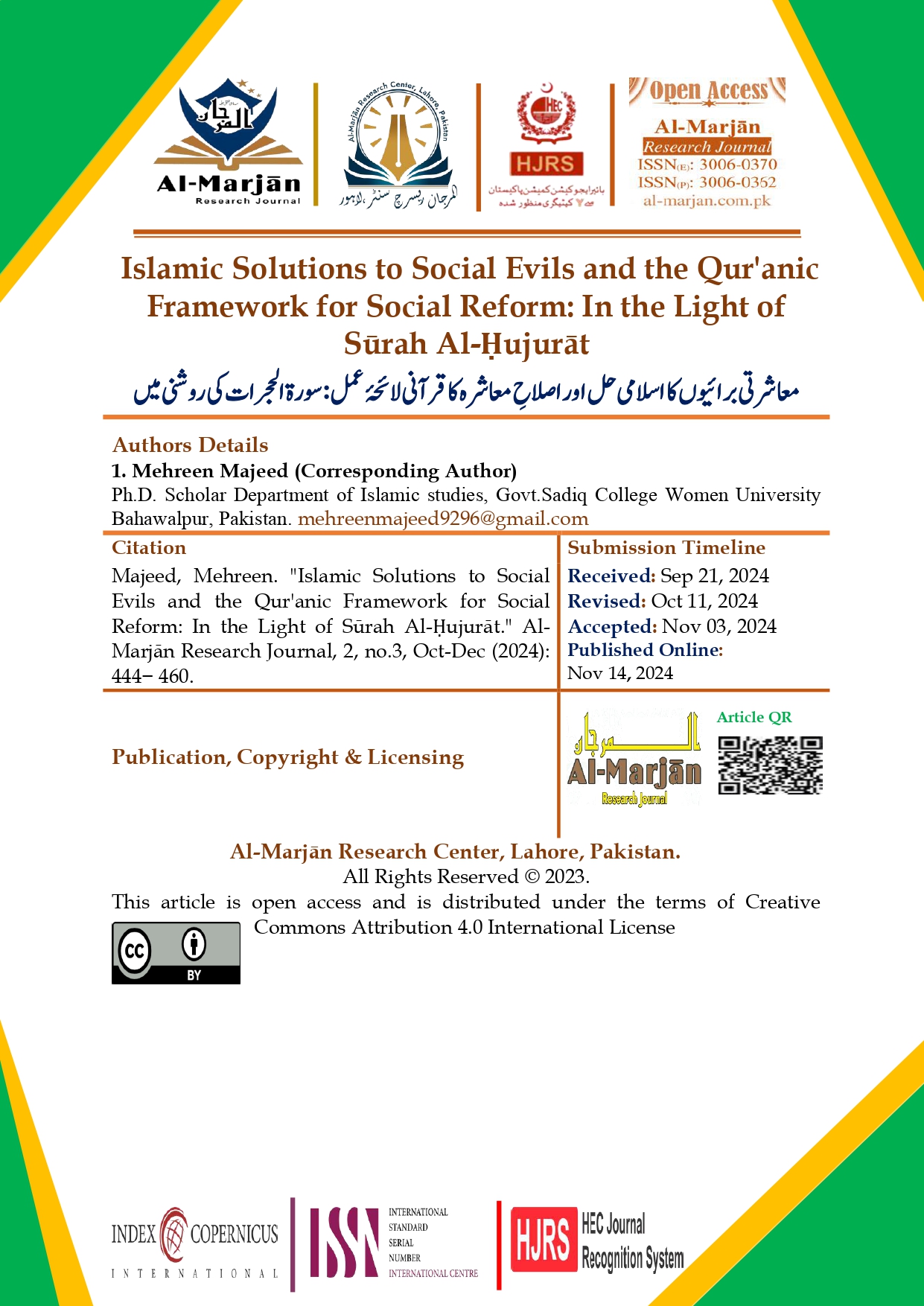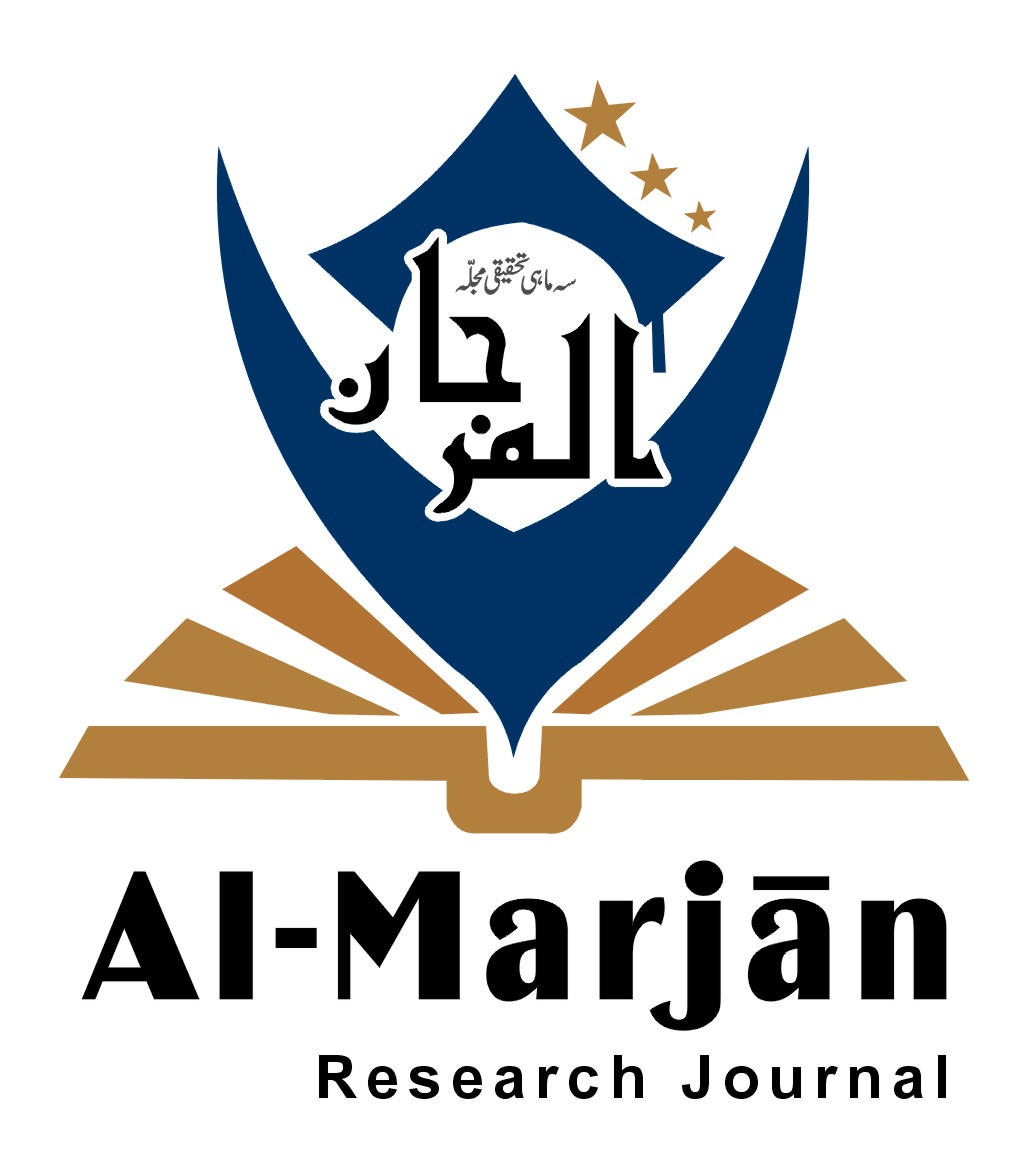Islamic Solutions to Social Evils and the Qur'anic Framework for Social Reform: In the Light of Sūrah Al-Ḥujurāt
معاشرتی برائیوں کا اسلامی حل اور اصلاحِ معاشرہ کا قرآنی لائحۂ عمل: سورۃ الحجرات کی روشنی میں
DOI:
https://doi.org/10.1234/8c14fp61Keywords:
Social ethics, Surah Al-Ḥujurāt, Islamic society, Qur’anic values, social reformAbstract
This research paper explores the Islamic solutions to widespread social evils in light of Sūrah Al-Ḥujurāt, a Medinan chapter of the Qur'an comprising eighteen verses. Commonly referred to as the "Chapter of Manners," it addresses essential ethical and social guidelines necessary for establishing a morally sound and spiritually cohesive community. The Surah emphasizes several critical issues: verifying news before acting on it, avoiding mockery, abstaining from backbiting, steering clear of suspicion, and maintaining mutual respect. Verse 13 is particularly notable, highlighting the principle of universal brotherhood and stating that honor in the sight of Allah is based solely on piety—not race, tribe, or social status. Drawing upon authentic exegesis (Tafsīr), Hadith literature, and contemporary scholarly works, this study aims to revive awareness of Qur'anic ethics and show their relevance to today's challenges, such as misinformation, social media defamation, and communal division. The paper evaluates the causes and consequences of moral decline in modern societies and proposes Qur'anic remedies grounded in Surah Al-Ḥujurāt. It concludes that the principles laid out in this chapter serve as a divine blueprint for the development of a peaceful, just, and spiritually enriched society. Furthermore, the study recommends the inclusion of Sūrah Al-Ḥujurāt in educational curricula to instill values of respect, justice, and brotherhood from an early age. The findings suggest that implementing these teachings can not only reform Muslim societies but also contribute to global peace and human dignity.






































